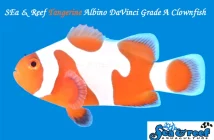Despite their venomous spines and flamboyant warning coloration, lionfish are not completely safe from predators. They don’t have very many predators in the wild, but there are a few fish that have figured out how to eat them. Juvenile lionfish are, like most juvenile fish, very susceptible to predation. But not even an adult lionfish is safe in the wild. Large fish such as groupers, scorpionfish, and other “lay and wait” predators with very large mouths can completely engulf a passing lionfish and eat it without suffering from any envenomation.
Additionally, aggressive fish with sharp beaks have been known to bite the spines off a lionfish in order to get to the edible parts. When I was working at a local fish store, a customer bought a massive clown triggerfish. This was the largest I had ever seen. He also purchased a very large Volitan lionfish. A few days after the purchase, the customer returned to tell us that his new clown trigger went to town on his new lionfish, ripping off all of its spines, eventually consuming portions of the fish.
Below is a video of a very large humpback scorpionfish capturing and eating a lionfish.
To prevent fish loss in Fish Only With Live Rock (FOWLR) aquariums and aggressive reef tank, it’s best to keep large predators away from each other. I know it’s difficult to have a huge fish tank with only one large fish, since the tank would be a waste of space, but if you want to house multiple aggressive fish you will have to prepare for and potentially suffer the consequences down the road. Of course it is a rare occurrence for a lionfish to get eaten, but it has happened.





